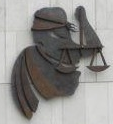Seeing justice done – open justice and the limits of the common law
 A little while ago, I argued that liberty, democracy and the rule of law together constitute the constitutional trinity on which many modern states are founded, and that, not only are there the traditionally understood strong liberal and democratic justifications for freedom of expression, there are also equally strong free speech justifications founded in the rule of law. In yesterday’s decision in R (on the application of Guardian News and Media Ltd) v City of Westminster Magistrates’ Court [2012] EWCA Civ 420 (03 April 2012), the Court of Appeal for England and Wales made this point in rhetoric of great eloquence, perspicuity and vigour (though the judgments are curiously ambivalent in their ambit and ambition).
A little while ago, I argued that liberty, democracy and the rule of law together constitute the constitutional trinity on which many modern states are founded, and that, not only are there the traditionally understood strong liberal and democratic justifications for freedom of expression, there are also equally strong free speech justifications founded in the rule of law. In yesterday’s decision in R (on the application of Guardian News and Media Ltd) v City of Westminster Magistrates’ Court [2012] EWCA Civ 420 (03 April 2012), the Court of Appeal for England and Wales made this point in rhetoric of great eloquence, perspicuity and vigour (though the judgments are curiously ambivalent in their ambit and ambition).
In my earlier post, I argued that, a commitment to the rule of law – where law is equally applied in open court by an impartial judiciary – both reinforces and is reinforced by robust protection of freedom of expression. The proper protection of fundamental rights reinforces the necessity for the protection of free speech as one of those fundamental rights. The proper functioning of impartial judicial tribunals is reinforced by the protection of free speech, which ensures monitoring of and comment upon the operation of such tribunals.…

 omment on this blog
omment on this blog